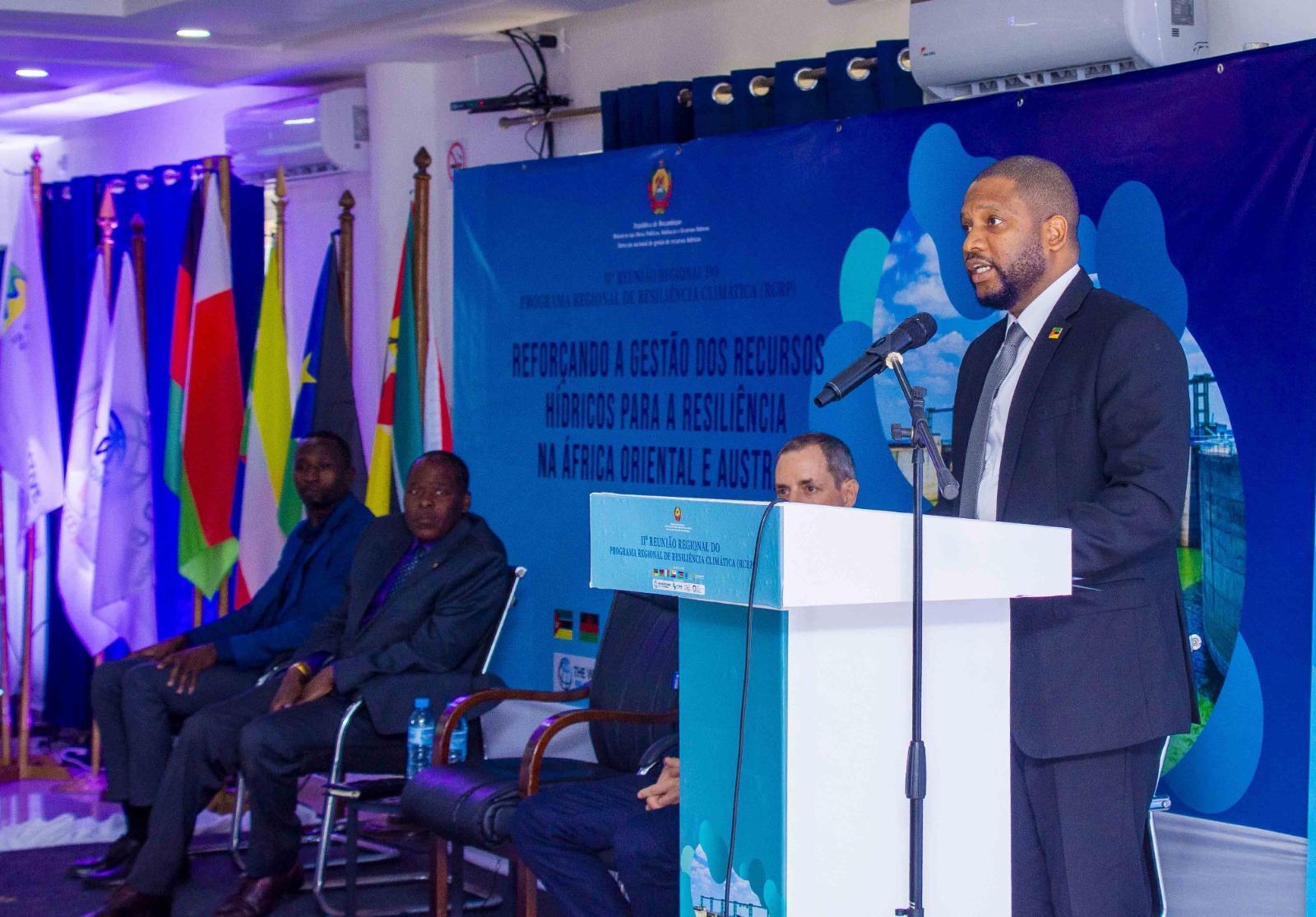Africa-Press – Mozambique. The Government of Mozambique has reaffirmed its commitment to building infrastructure that is resilient to climate change, and to the integrated and sustainable management of water resources. This commitment was once again demonstrated when, on Monday (02-06) the country hosted the second meeting of the Regional Climate Resilience Program (RCRP) for Eastern and Southern Africa, at Ponta do Ouro in Maputo province.
Mozambique’s Minister of Public Works, Housing and Water Resources, Fernando Rafael, announced at the opening of the meeting that Mozambique would benefit from approximately US$125 million, equivalent to 33% of the US$382 million allocated to the RCRP. This would be invested in projects that aim to protect the most vulnerable communities, guaranteeing water security and strengthening national capacity to respond to climate shocks.
According to the minister, the effects of climate change in Mozambique are unquestionable and increasingly severe, resulting in cyclones, droughts, floods and saline intrusion, which effects compromise basic infrastructure and worsen poverty.
“Over the last 10 years, our country has seen an unprecedented increase in extreme climate events. This reality requires urgent, coordinated and sustained action, with a focus on the construction of strategic water storage infrastructures and the promotion of resilient and sustainable solutions,” he said.
Concrete actions that Mozambique is implementing with the support of the RCRP include the studies for the construction of the Macuje dam in Nampula; the rehabilitation of dikes in the Incomáti, Limpopo, Búzi, Save, Zambeze and Licungo river basins, and safety assessments of the Pequenos Libombos and Massingir dams.
In addition, the construction of an auxiliary spillway for the Corumana dam, the modernization of the national hydrological monitoring network and the updating of the National Hydrogeological Map are in prospect. Studies for major retention works, such as the Moamba Major and Alto Lúrio dams are also progressing.
World Bank representative Francis Ghesquière stressed that “water is essential for life, for cities, for agriculture and for energy production”, calling for responsible and collaborative management of this vital resource, especially in the context of the challenges shared by the region.
The meeting was attended by delegations from countries such as Comoros, Madagascar, Malawi and South Sudan, as well as multilateral partners such as the Cooperation in International Waters in Africa (CIWA) program, the Climate Investment Fund and the Partnership for Quality Infrastructure.
The importance of cross-border cooperation in the management of shared watercourses, the mobilisation of public and private investment and the consolidation of integrated climate resilience policies were reiterated during the working sessions.
For More News And Analysis About Mozambique Follow Africa-Press






